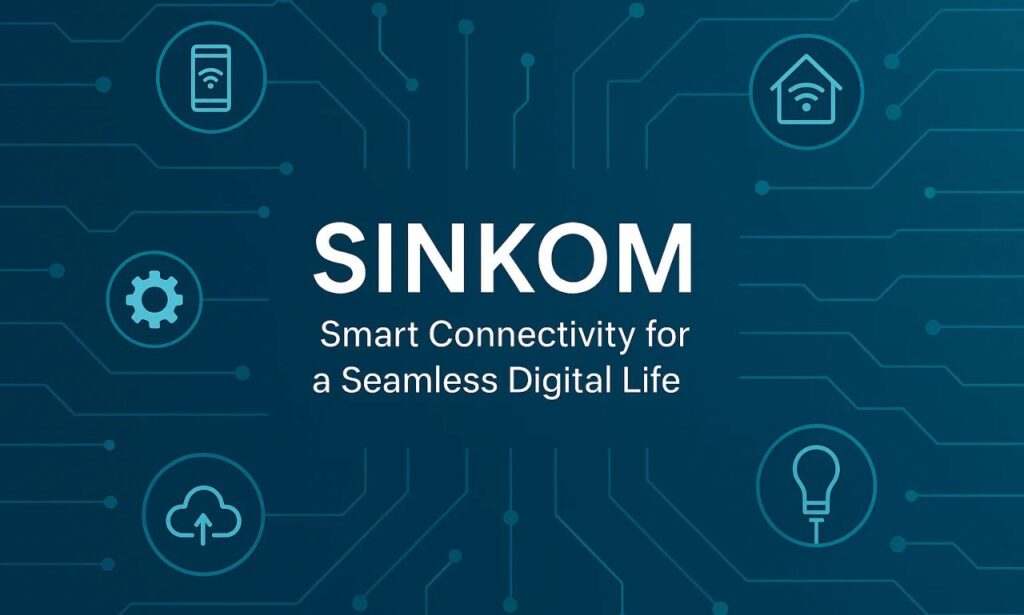Sinkom is an emerging term that has gained attention in multiple industries due to its innovative applications and versatility. While not widely known among the general public, Sinkom has become a point of interest for researchers, manufacturers, and technology enthusiasts. From its conceptual development to practical uses, understanding Sinkom provides insight into how modern solutions are reshaping global markets.
The History and Development
The history of Sinkom begins with its conceptualization as a response to industry demands for efficiency, sustainability, and adaptability. Early prototypes were limited in scope, but with advancements in materials science and engineering, Sinkom evolved into a robust solution capable of addressing diverse challenges.
By combining scientific research with practical field testing, developers refined Sinkom to meet high-performance standards while maintaining cost-effectiveness.
Core Features of Sinkom
One of the reasons Sinkom has gained popularity is due to its distinctive set of features. These include:
-
High durability – Designed to withstand environmental stress.
-
Adaptability – Can be tailored for different industries.
-
Cost efficiency – Offers long-term savings through reduced maintenance.
-
Eco-friendly properties – Many Sinkom variants are produced with sustainable materials.
Industrial Applications of Sinkom
Sinkom has become essential in several industrial sectors due to its multifunctional nature.
Sinkom in Construction
In the construction sector, Sinkom is valued for its strength and reliability. Builders use it for structural reinforcement, surface finishing, and energy-efficient designs.
Sinkom in Manufacturing
Manufacturing companies utilize Sin-kom for precision tooling, product assembly, and quality control processes, leading to increased productivity.
Sinkom in Energy Solutions
In renewable energy, Sin-kom components play a role in improving the performance of solar panels, wind turbines, and energy storage systems.
In Everyday Life
Beyond industrial settings, Sin-kom has practical uses in daily life. From household tools to personal gadgets, it has become part of modern living. This everyday presence highlights how a technological concept can transition from specialized use to widespread accessibility.
Technological Advancements in Sinkom Production
Technological innovation has fueled the growth of Sin-kom. Automated production lines, AI-driven quality testing, and material science breakthroughs have made it possible to produce Sinkom at scale without compromising quality. This development ensures that Sin-kom remains competitive in both local and global markets.
Environmental Benefits
Sustainability is a major factor driving Sin-kom’s adoption. Many Sin-kom models are made from recyclable or biodegradable components, reducing landfill waste. Additionally, its long lifespan decreases the need for frequent replacements, further minimizing environmental impact.
Sinkom and the Global Market
The global demand for Sin-kom has increased due to its adaptability and proven track record. International trade reports show a steady rise in production and export, particularly in regions that prioritize advanced technology and sustainable practices. Countries investing in infrastructure and renewable energy see Sinkom as a strategic asset.
Challenges Facing Sinkom Adoption
While Sin-kom offers numerous advantages, there are challenges to its widespread adoption:
-
High initial investment for advanced models.
-
Lack of awareness among small businesses and consumers.
-
Regulatory hurdles in certain countries that delay approval.
Overcoming these challenges will require targeted marketing, training programs, and industry partnerships.
Innovations Driving the Future
Future developments in Sin-kom technology focus on enhancing performance, reducing production costs, and integrating smart features. For example, researchers are working on IoT-enabled Sinkom units that can monitor their own performance, predict maintenance needs, and optimize energy consumption.
How Businesses Can Benefit from Sinkom
Companies that adopt Sinkom early can gain a competitive advantage. Benefits include:
-
Streamlined operations.
-
Reduced waste and operational costs.
-
Improved brand reputation through sustainable practices.
These advantages make Sin-kom not just a product but a long-term investment.
In Research and Education
Educational institutions and research labs use Sin-kom to study material properties, test engineering concepts, and develop innovative prototypes. This academic involvement ensures that new generations of engineers and scientists are familiar with its capabilities.
Safety Standards and Regulations for Sinkom
Safety is a critical factor in Sinkom deployment. Manufacturers follow strict guidelines to ensure products meet international safety standards. Compliance with these regulations helps maintain market credibility and user trust.
The Role in Emerging Economies
Emerging economies are increasingly recognizing the value of Sin-kom in infrastructure development, manufacturing, and sustainable energy projects. Affordable Sin-kom variants tailored for local markets could accelerate industrial growth in these regions.
Comparing Sin-kom with Alternative Solutions
While other materials and technologies offer similar benefits, Sin-kom stands out due to its balance between performance, cost, and sustainability. This combination makes it a preferred choice for industries seeking long-term reliability.
Consumer Perspectives
End-users report high satisfaction rates, especially in terms of durability and ease of use. This positive feedback contributes to its growing reputation and market demand.
Maintenance and Longevity
Proper care and maintenance can extend the lifespan of Sin-kom products. Simple practices such as regular cleaning, proper storage, and timely servicing help maintain optimal performance for years.
Role in a Sustainable Future
With global focus shifting toward environmental responsibility, Sin-kom is positioned as a key contributor to a greener future. Its eco-friendly production methods and extended usability make it a vital component in sustainability strategies.
Conclusion
Sinkom is more than just a technological innovation; it is a versatile, sustainable, and future-ready solution that bridges multiple industries. From construction to consumer products, its applications are broad and impactful. With continued advancements, Sin-kom will likely become a standard in efficiency-driven, eco-conscious markets worldwide.







